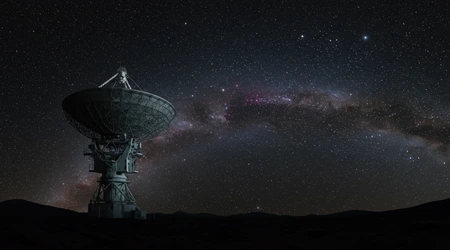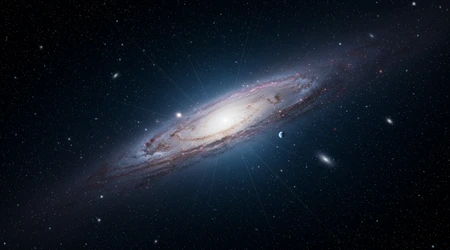The Great Silence: Why the Universe Isn’t Responding to Us

Great Silence haunts our search for extraterrestrial life, a cosmic puzzle begging answers. Why does the universe, vast and ancient, remain eerily quiet?
Anúncios
Despite billions of stars and planets, no signals, no visitors, no cosmic postcards arrive. This article dives into the Fermi Paradox, exploring why advanced civilizations might be silent, hidden, or nonexistent.
From scientific theories to philosophical musings, we’ll unravel this mystery with fresh perspectives. Join us as we probe the void, seeking clues to humanity’s place in the cosmos.
The universe is 13.8 billion years old, with countless habitable worlds. Yet, no alien contact. The Great Silence fuels curiosity and debate. Are we truly alone? Or are we missing something?
This exploration blends science, philosophy, and imagination to address the silence. We’ll examine real data, propose original ideas, and avoid recycled tropes.
Expect a journey that’s both grounded and thought-provoking, with insights into our cosmic solitude.
The Fermi Paradox: A Cosmic Conundrum
Enrico Fermi’s 1950 question, “Where is everybody?” birthed the Fermi Paradox. Trillions of stars should host advanced life, yet we hear nothing.
The Great Silence suggests a contradiction: life’s probability versus its absence. Why no signals? Are civilizations rare, hidden, or extinct?
This paradox drives modern astrobiology. Scientists estimate 100 billion planets in our galaxy alone. Surely, some harbor life.
The paradox isn’t just about numbers. It’s about time. The universe’s age allows civilizations to emerge and spread. Yet, no trace of them exists.
++ Why the Cosmic Microwave Background Still Confuses Physicists
Could advanced species avoid detection deliberately? Perhaps they’re too far to reach us. The Great Silence challenges our assumptions about life’s prevalence. It’s a riddle that demands creative thinking beyond conventional science.
Consider a galactic internet analogy: Earth’s a new user, pinging an empty chatroom. Are we too late? Or are we using the wrong app?
The paradox invites us to question our tools and expectations. Maybe the Great Silence isn’t silence at all it’s a signal we can’t yet decode.

Possible Explanations for the Silence
The Rarity of Intelligent Life
Life might be common, but intelligence rare. Earth’s history shows complex life took billions of years. Microbes dominate; sentient beings are outliers.
A 2020 study estimated only 36 communicative civilizations in the Milky Way. This scarcity explains the Great Silence. Evolution’s hurdles multicellularity, intelligence, technology are steep. Most planets may never cross them.
Even if life emerges, intelligence isn’t guaranteed. Dinosaurs ruled for millions of years without building radios. Environmental pressures might favor survival over tech.
Also read: The Dark Flow Mystery: Is Our Universe Being Pulled by Something Beyond?
The Great Silence could mean we’re a fluke. Imagine a cosmic lottery: Earth won, but others didn’t. This rarity hypothesis humbles our search for neighbors.
Planetary conditions also matter. Stable climates, like Earth’s, are uncommon. Extreme worlds may halt evolution’s march.
The Great Silence might reflect a universe of barren or primitive planets. Are we shouting into a void of microbes? This possibility reshapes our cosmic expectations.
The Zoo Hypothesis: Are We Being Watched?
What if aliens observe us but stay silent? The Zoo Hypothesis suggests advanced civilizations avoid contact, treating Earth like a wildlife preserve.
They might hide to protect our development. The Great Silence could be their ethical choice. Imagine a galactic council enforcing non-interference, like Star Trek’s Prime Directive.
This idea assumes aliens are near but concealed. Their tech could cloak signals or ships. We’re like ants unaware of a scientist’s gaze.
Read more: Are Time Loops Possible in Curved Spacetime?
The Great Silence might hide their presence. Why interfere with a fledgling species? They could be studying our art, wars, or memes from afar.
Alternatively, they might wait for us to mature. A civilization broadcasting loudly might invite danger. The Great Silence could be a test are we ready for contact?
This hypothesis sparks curiosity: what if we’re not alone, just ignored? It’s a humbling yet thrilling possibility.
Self-Destruction and the Great Filter
Civilizations might collapse before reaching us. The Great Filter theory posits a barrier nuclear war, climate collapse, AI mishaps that wipes out advanced life.
The Great Silence could be the graveyard of reckless species. Earth’s own risks, like global warming, mirror this idea. Are we nearing our own filter?
Historical data supports this. Civilizations like the Maya fell to resource overuse. Extrapolate to cosmic scales: tech-heavy societies might self-destruct.
The Great Silence may signal that survival is rare. Picture a galaxy littered with ruins of once-great species. This sobering thought urges caution in our own progress.
Could the filter lie ahead? If so, humanity’s survival hinges on wisdom. The Great Silence warns us to tread carefully.
Will we overcome our challenges, or join the cosmic graveyard? This question drives urgency in addressing global threats like AI ethics or ecological collapse.
Technological and Cosmic Barriers
Distance and time could explain the Great Silence. Light-speed limits mean signals take centuries to cross galaxies. A civilization 1,000 light-years away wouldn’t hear us yet.
Cosmic expansion further isolates us. Signals weaken over vast distances, becoming undetectable. Our tech might simply be too primitive.
Alien tech could also differ wildly. They might use neutrinos or quantum signals, not radio waves. We’re like cavemen expecting smoke signals from spaceships.
The Great Silence might stem from mismatched methods. Developing new detection tools could bridge this gap. Are we listening wrong?
Energy costs also matter. Broadcasting across stars is resource-intensive. Civilizations might prioritize efficiency over outreach.
The Great Silence could reflect their pragmatism. Imagine a species conserving power for survival, not cosmic chats. This challenges us to rethink our search strategies.
Philosophical Implications: Are We Truly Alone?

The Great Silence forces us to confront our solitude. If we’re alone, humanity’s responsibility grows. We’re the universe’s only storytellers, tasked with preserving consciousness.
This weighty idea reshapes our purpose. What does it mean to be the sole voice in a cosmic void?
Alternatively, the silence might be temporary. We’ve only searched for decades a blink in cosmic time. Patience could reveal neighbors.
The Great Silence invites humility. Are we arrogant to expect instant replies? Like a child shouting in a forest, we may need to wait for an echo.
Existentially, the silence sparks wonder. Each discovery exoplanets, biosignatures hints at possibilities. The Great Silence isn’t defeat; it’s a challenge to keep exploring.
Picture humanity as a lone sailor on a vast ocean, seeking distant shores. Our curiosity drives us forward.
Data Table: Key Statistics on the Search for Extraterrestrial Life
| Metric | Value |
|---|---|
| Estimated planets in Milky Way | 100–400 billion |
| Age of the universe | 13.8 billion years |
| Years of SETI searches | 65 (1960–2025) |
| Potential communicative civilizations (2020 estimate) | 36 ± 20 |
Source: University of Nottingham, 2020 study on communicative civilizations
The Search Continues: New Horizons
SETI’s efforts persist, scanning skies for signals. New telescopes, like the James Webb, probe exoplanet atmospheres for life’s signs.
The Great Silence fuels innovation. AI now aids signal analysis, sifting cosmic noise. A 2024 breakthrough detected potential biosignatures on K2-18b. Hope endures.
Citizen science also thrives. Projects like SETI@home let anyone join the hunt. The Great Silence unites us in curiosity.
Imagine discovering a signal tomorrow humanity’s story would change forever. Collaborative efforts ensure we keep listening, refining our cosmic ear.
Future missions target nearby stars. The Breakthrough Starshot aims to send probes to Alpha Centauri. The Great Silence might break with closer inspection.
Are we on the cusp of contact? These endeavors show humanity’s resolve to solve this mystery.
Conclusion: Embracing the Cosmic Mystery
The Great Silence remains one of humanity’s greatest enigmas. It challenges our science, philosophy, and imagination. Are we alone, ignored, or just early to the party?
This mystery drives us to explore, innovate, and reflect. The universe’s silence isn’t a dead end it’s an invitation. Let’s keep asking, searching, and dreaming.
As we gaze at the stars, the Great Silence whispers back, urging patience and curiosity. Each unanswered call refines our questions.
Will we one day hear a reply? The journey to uncover the truth unites us, binding humanity to the cosmos in a shared quest for meaning.
Frequently Asked Questions
Q: Why is the universe so silent if it’s so vast?
A: The Great Silence could stem from rare intelligent life, hidden civilizations, or technological barriers. Factors like distance or self-destruction also play a role.
Q: Could we ever break the Great Silence?
A: Yes, with advanced telescopes, AI signal analysis, or interstellar probes, we might detect signals or visit nearby stars, potentially ending the Great Silence.
